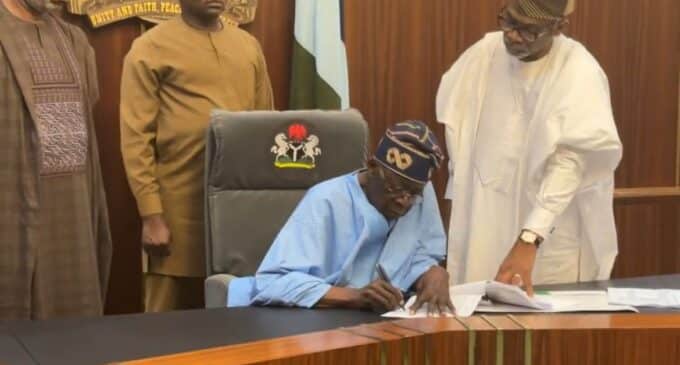Headlines
Nigerian State Governors Reject President Tinubu’s Tax Reforms

Nigerian state governors have asked for the withdrawal of legislation to amend the nation’s tax laws, dealing a blow to President Tinubu’s bid to increase revenue to plug a widening spending gap.
BrandNewsDay understands that the National Economic Council, which is headed by the nation’s vice president and includes governors of the 36 states including the central bank, called for more consultation on four tax bills currently before lawmakers.
Seyi Makinde, Governor of Oyo state in the south-west of the country and a member of the main opposition party said the request to withdraw the tax bills is to enable “wider consultations and also build consensus around these reforms for the benefit of the entire country.”
It is the second time this week that the president has received pushback on his tax reforms, after a group of powerful politicians in the country’s north, including 19 state governors, opposed the proposals on Monday.
Tinubu promised to revamp Nigeria’s tax laws – some of which the president argued are cumbersome and responsible for the tax-to-gross domestic product ratio of around 11% in 2023, which is low when compared with peers like Egypt and Kenya.
RECOMMENDED: How Zenith Bank Laundered Billions For Ex-Nigerian Governor
Tinubu’s proposals sought to increase VAT to 15% in six years reduce company tax to 25% around the same period, and tax the nation’s wealthiest earners a quarter of their annual income from 2025.
While the government argued it was not introducing any new taxes or raising old ones, the bills were part of plans to increase tax as a proportion of GDP to 18% in two years and shore up the government’s coffers depleted by declining crude sales.
The NEC has constitutional backing to make economic recommendations to the president and their rebuke of the tax bills could force Tinubu to review the proposals. Still, the president may choose to ignore the request as he is not legally compelled to follow the NEC’s recommendations.
“At the moment, tax administration lacks coordination among federal, state, and local tax authorities, often resulting in overlapping responsibilities, confusion, and inefficiency,” presidential spokesman Bayo Onanuga posted on X. “Without reform, this inefficiency will persist.”

















